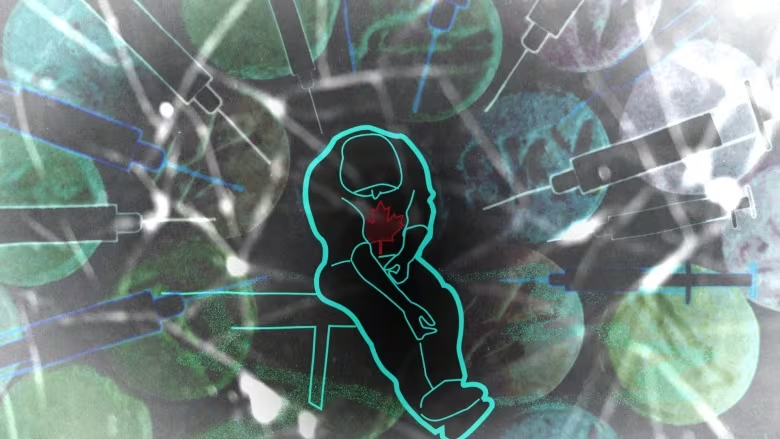
CBC News interviewed community organizations worried that drug use among newcomers to Canada is not being adequately addressed. (Image credit: Duk Han Lee/CBC News Graphics)
Within mere weeks of arriving in Canada, Ali, an international student from Turkey, found himself ensnared in the grip of crystal methamphetamine, seeking solace from the overwhelming loneliness that threatened to suffocate him. His harrowing tale echoes that of Raza, a Syrian refugee navigating the treacherous waters of isolation and economic hardship in Saskatoon. Their voices, shrouded in anonymity due to the stigma surrounding drug use and mental health, underscore a sobering reality: the hidden epidemic of substance abuse among newcomers in Canada.
Ali's descent into addiction serves as a chilling testament to the gaping void in culturally sensitive mental health services, a deficiency that exacerbates the struggles of individuals like him and Raza. As they grapple with the crushing weight of displacement and the daunting challenge of integration, the allure of substances beckons, offering temporary respite from their profound anguish.
Against the backdrop of Saskatchewan's staggering toll of drug toxicity deaths, which reached a staggering 484 in 2023, the urgency of addressing this burgeoning crisis looms ever larger. However, the absence of comprehensive data on the prevalence of substance use among immigrant communities shrouds the true extent of the problem in uncertainty, hindering efforts to implement targeted interventions.
Community leaders and experts, such as Geoffrey Maina of the University of Saskatchewan, advocate for a multifaceted approach encompassing both data collection and culturally-specific care. Organizations like Truly Alive Youth and Family Foundation and Punjabi Community Health Services stand as beacons of hope, offering invaluable support to individuals grappling with addiction within a framework that acknowledges their unique cultural backgrounds.
Yet, as demand for such services surges, resources strained under the weight of escalating need. The dearth of funding and trained personnel threatens to leave countless individuals languishing in the shadows, their cries for help drowned out by the cacophony of systemic neglect.
In the face of this mounting crisis, the imperative for proactive intervention has never been clearer. The time to act is now before the nascent embers of this epidemic ignite into an inferno of unmanageable proportions. Only through concerted efforts to bridge the chasm of cultural insensitivity and resource scarcity can we extend a lifeline to those teetering on the brink, offering them not just survival, but the promise of a future reclaimed from the clutches of addiction.















